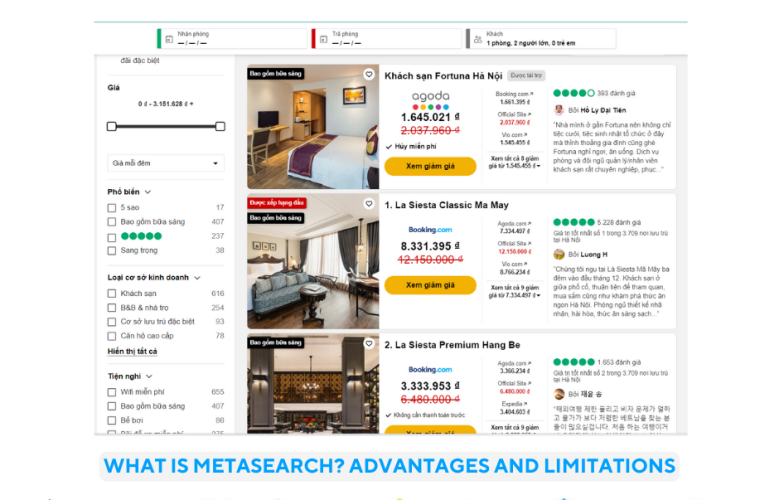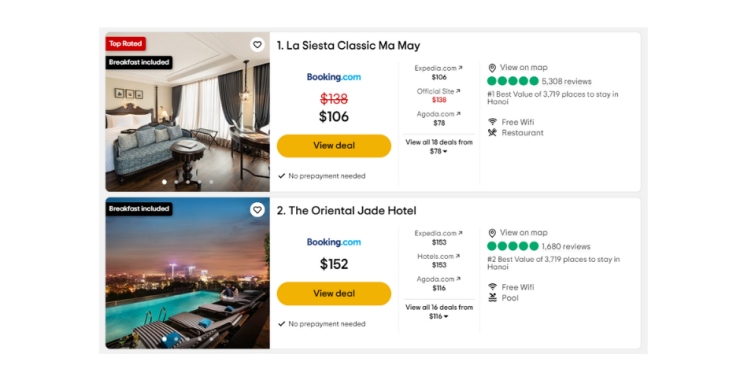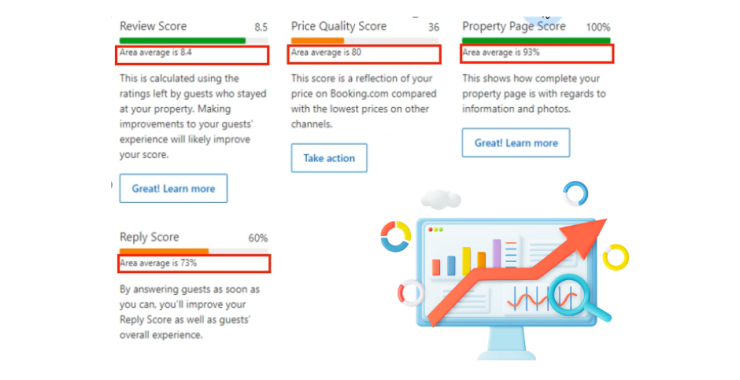What is Metasearch? Advantages and limitations
Metasearch engines are a unique search engine that displays the current rates of many different hotels in a given destination. Let see: What is Metasearch? Advantages and limitations at this article.
As of now, there are more than 400 OTA players worldwide. Despite the coronavirus crisis, the future of OTAs also looks optimistic. This sector is predicted to grow at a CAGR of 14.8% from 2021 and reach $902.2 billion by 2023. According to Statista.com, the OTA market size is worth $595.78 billion. In Europe, the clear leader is Booking.com with a 67.7% market share.
What is Metasearch?
When registering to open sale of rooms on OTA channels such as booking.com, Agoda.com, Expedia, Traveloka …, the METASEARCH TOOLs will get data in many ways such as via API to display content and prices to customers. search. The Metasearch tool provides information on travel and hotel products, and then directs consumers to direct booking websites or registered OTA channels.
According to Google estimates, over 68% of all travel starts on Google, and Google also observed that 52% of travelers visit your hotel website after seeing you on an OTA. Besides, channels like TripAdvisor are working to become a single place to research and book hotels, making this the perfect time for hotels to start investing in metasearch. TripAdvisor is one of the most popular travel websites in the world, typically receiving over 100 million monthly web visits.
When a traveler is using metasearch to find a hotel and they click on a rate they like, they usually go to an online travel agent (OTA) or the hotel’s website to make a reservation.
In this case, the hotel would not operate a PPC model, but rather a commission-based system whereby Google or TripAdvisor take a percentage of the booking revenue, the same way OTAs do.
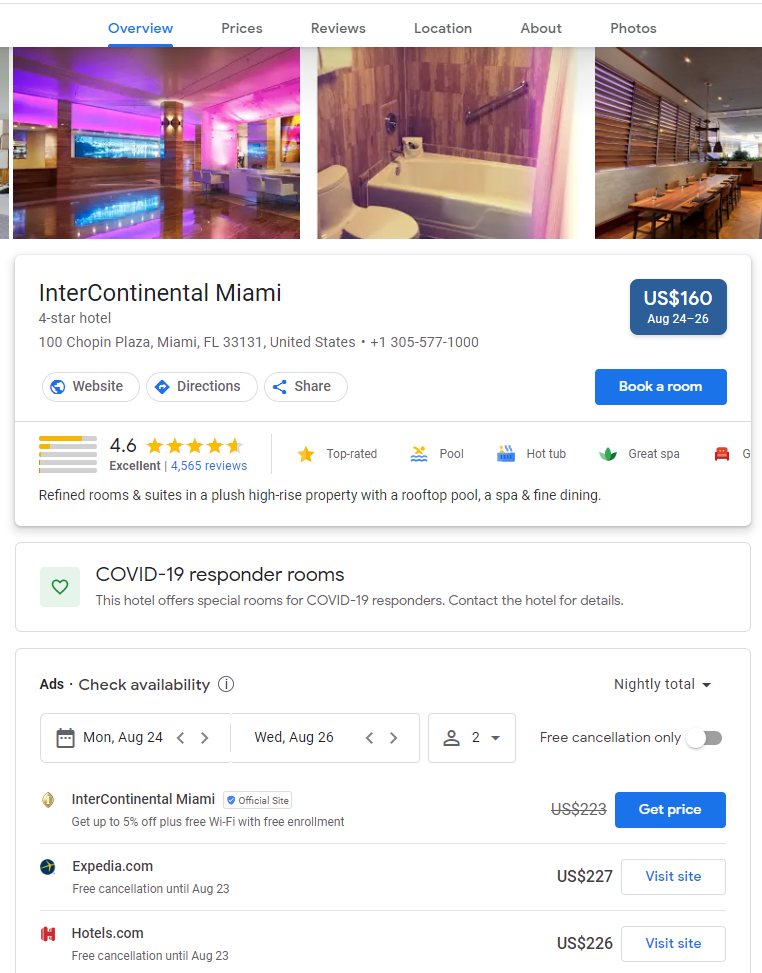
What I Meta Earch Advantage And Limitation (1)
Advantages of Metasearch?
Metasearch is considered a very valuable space for hotels as it allows them a chance to compete with larger travel agencies and secure more direct bookings. Therefore, ensuring a uniform price avoids “Disparity” between OTA channels.
Meta search is a tool that aggregates dates from other search engines and produces results for users. In the travel industry, search engines aggregate rates and availability of hotels from various sources mainly from OTAs and sometimes directly from hotels.
When your property is displayed on hyperlinking tools, the information will be widely available on many different platforms.
Metasearch sites also encourage guests to leave reviews, giving hotels a unique opportunity to respond to comments, engage with their guests, and reach out directly to their audience. Metasearch is a great option if you can ensure that customers choose to link directly to your site
As the leading websites, having your property displayed on METASEARCH or in google search results is a great thing to significantly increase direct traffic to the hotel’s website or other channels. your OTA.
See also: Operational models of OTA channel
The difference between metasearch engines and OTAs
OTAs are a pivotal player in online distribution. While they may seem expensive for small accommodation providers, they are actually valuable partners to sell your inventory through. OTAs promote hotels in destinations across the globe, advertising room rates, descriptions and photographs. You can book directly on an OTA website.
They have a massive marketing budget, and they will outrank you on just about any search engine result page. Instead of trying to compete with the OTAs, you should create a distribution partnership with them so that they can promote your small hotel for you. While you do pay them a commission, without OTAs, you might go unnoticed by a large percentage of the population.
Ultimately, this makes the booking process more convenient for travelers, as they can compare rates at a glance. While metasearch engines display this information, they don’t sell inventory. This is the key difference between metasearch engines and OTAs.
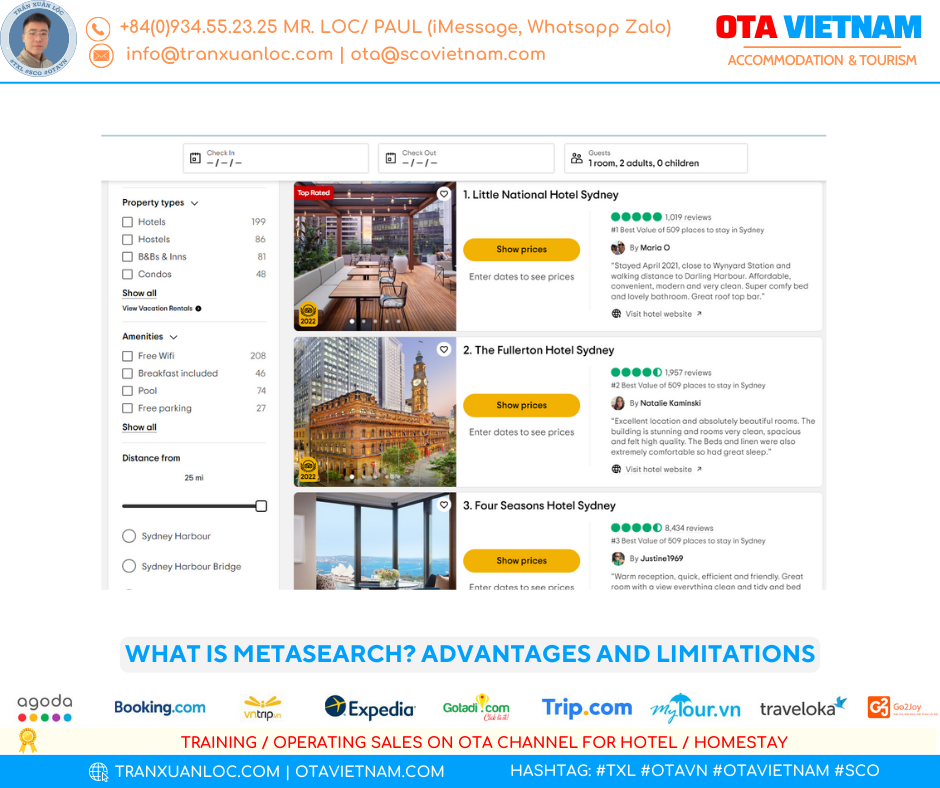
Eng Otavn Otavietnam 940x788px What I Meta Earch Advantage And Limitation (1)
Limitations of Metasearch?
Is a customer going to get quite confused and start including factors other than price in his decision making process? How would the hotel or you feel when the same product, with such different prices and conditions?
The fact that websites look for metadata can be confusing, but there’s so much more to it. Metadata search sites link to travel websites provided by Hotels/Airlines/Car rental companies that distribute products…
So, at the end of the cycle, I believe that we, as suppliers, must also do our best to control and manage the distribution of our products…. It’s not ultimately ourselves among those to blame for an inherently confusing booking process.
The best way to control is to use channel management tools (Channel Manager) or to ensure price parity on all OTA channels open for sale.
Metasearch though has existed for a long time compared to the development of the global internet network. However, with the strong development of mobile devices, wireless networks, computers, etc., metasearch is gradually getting more attention by business people.
